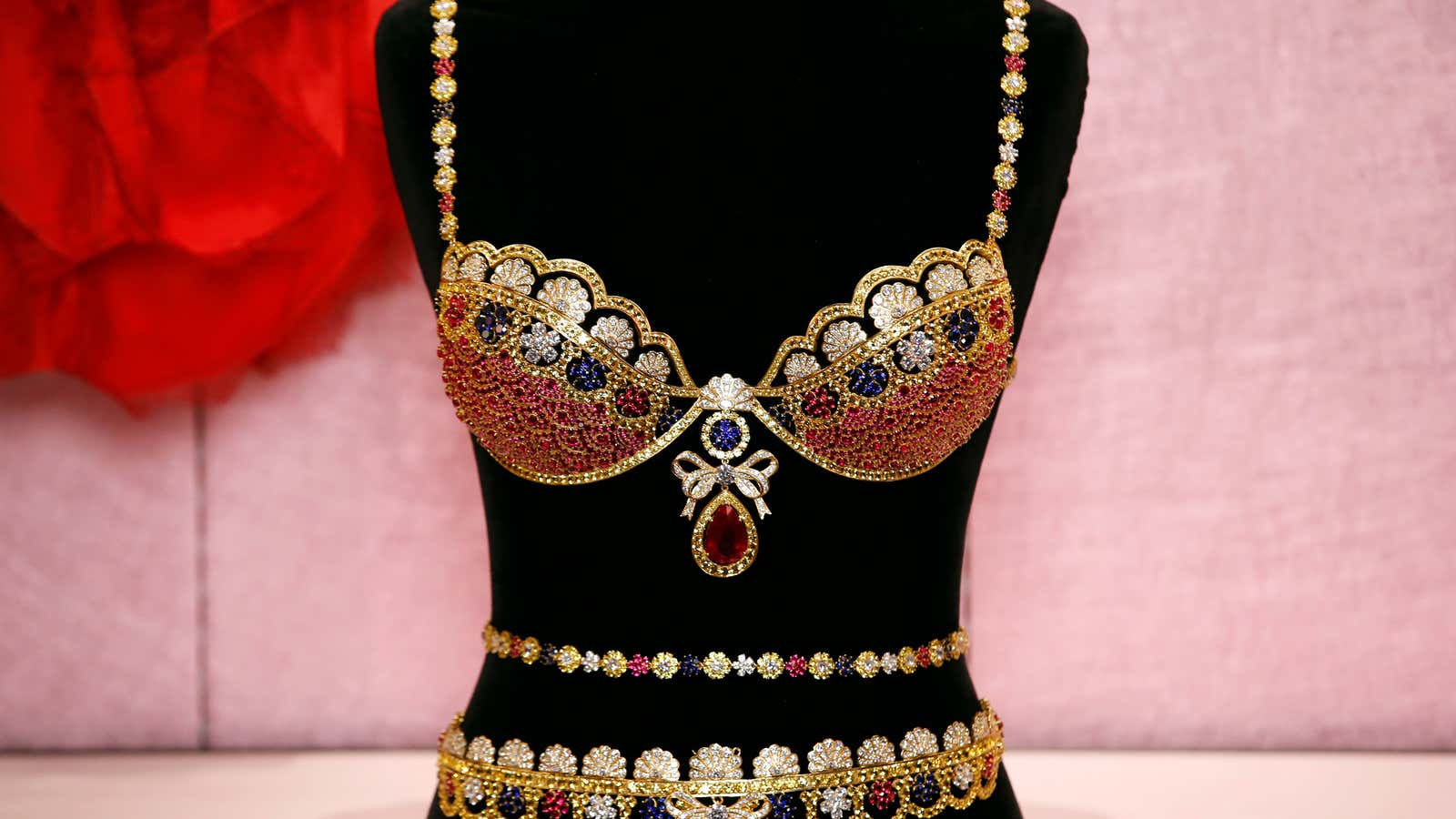Efficiency isn’t everything for economists, despite the popular image.
Come holiday time each year, you’ll hear about the scrooges with their models explaining that gift-giving isn’t a good idea: People often get things they don’t want, and in that case the giver has sucked value out of the world, wasting precious resources. That $50 sweater your aunt got may be too ugly for public consumption, but it’s also deadweight loss. An estimate by Wharton Professor Joel Waldfogel suggests that 20% of gift giving money is wasted this way.
But do most economists really feel this way? According to a survey performed by the University of Chicago’s Booth School of Business, the answer is no: Some 62% of respondents disagreed with the idea that cash is the most efficient gift. The reason is that there is more to an economic exchange than its face value. “Instead of proposing to your wife [with a] diamond ring, you offer a gift card of equal value. Efficient—if you don’t count your hospital bills,” commented Chicago’s Austan Goolsbee.
While it’s easy to mock the stilted jargon of the economist, there are important lessons to be found. Most importantly, many economists assume that people are utility-maximizing at the expense of everything else. Gifts have confounded economic models for a long time, to the point that it was a major opportunity for study when they appeared in digital economies. But the holidays force an admission that the price of something isn’t the full depiction of its economic value.
Gifts offer important signaling opportunities—the amount of time and effort put into obtaining a present has value to the recipient as well, or, as MIT’s David Autor puts it, “presents serve multiple interpersonal purposes. Revealed preference indicates that income transfer is not the primary one.” It also provides an opportunity for information exchange—that gift of an album, book or trip you never would have expected.
Insights around these kinds of non-price interactions have driven the work of recent Nobelist Robert Shiller, whose introduction of behavioral concerns helped us understand asset bubbles and stock volatility. It has also offered insight into everything (pdf) from involuntary unemployment to monetary policy to how little you are saving for your retirement. While the implications of inserting messy human behavior into economic models haven’t been accepted across the profession, that poll suggests that an encounter with the holiday spirit helps clarify the issue for practitioners of the dismal science.
One thing is for certain about scroogenomics, according to Princeton’s Angus Deaton: ”This is the sort of narrow view that rightly gives economics a bad name.”
